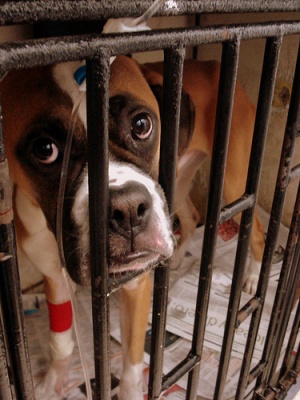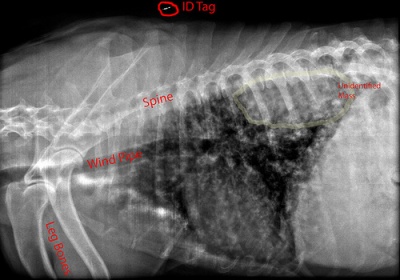
Kidneys play a very important part in keeping our pets healthy. They filter the blood, removing toxins, excreting them through the urine. The kidneys also maintain the water and electrolyte balance and produce some hormones which stimulate red blood cell growth.
If your pet’s kidneys are not functioning properly, the waste products that remain in the body cause serious illness. In older cats kidney disease is the leading cause of death.
There are two types of kidney disease. Acute Renal Disease (ARD) has a sudden onset. It can be caused by the ingestion of toxic substances, lack of blood supply to the kidneys, a urinary blockage or low blood pressure. Chronic Renal Disease or Failure (CRD or CRF) occurs over a period of time. CRF can be due to old age or it can be hereditary. Symptoms are not readily apparent until the kidneys have lost about 60% of function.
Symptoms of kidney problems can be reduced appetite, depression, fatigue, lethargy, bad breath. One of the first signs is usually increased thirst as well as the need to urinate often. Your pet may have accidents in the house.
Pets with diseases such as cancer and diabetes often have kidney problems either disease-related or due to the medications they must take.
There is no cure for CRF, but with treatment further damage can be slowed or stopped. Early detection and regular veterinary checkups can offer a quality life for your pet.
You can help your pet reduce the risk of kidney disease by always having a bowl of fresh, clean water available. Diet plays a very important role in keeping your pet fit. Read all you can and discuss with your veterinarian or a pet nutritionist, the diet best suited to your pet’s needs.
If your cat or dog are in the early stages of kidney disease, it is now recommended that they have enough protein in their diet to maintain energy levels. If the disease has progressed, check with your vet as to the amount of protein that your particular pet’s diet should contain.
There are herbs and supplements that can help, but before administering any product, consult with your vet.
When you take your pet for a checkup, your vet will probably ask to do a blood test which can show if there are any problems. As your pet ages, a twice yearly blood test, urinalysis and general examination are recommended.
If you suspect your pet is ill or isn’t behaving normally, don’t delay, take him/her to your vet for an examination. While damage may not be able to be reversed, the disease can be slowed.
There are kidney transplants available for pets, but cost makes them prohibitive in most instances.
Related articles:



